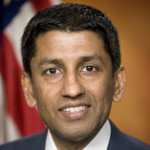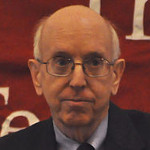By Cortney Shegerian
Shegerian & Associates
The Americans with Disabilities Act protects disabled individuals from discrimination and harassment in the workplace, but what health conditions are considered disabling? According to the EEOC, claustrophobia is a disability that must be accommodated in the workplace.
Regis Corporation will pay $60,000 to former hair stylist Nora Jacquez to settle a disability discrimination suit filed by the EEOC. Jacquez told her employer she could not work in a station “if it was in a confined space located between others,” because of her claustrophobia. The employer initially gave in to her request and placed her in an open station, but later, she was moved in between two other stylists. Her requests to move back into an open station were denied, and as a result, she suffered anxiety attacks that led to her hospitalization.
Jacquez then requested up to two months off to treat her claustrophobia, but the company failed to assist her with the required paperwork. Regis Corporation eventually fired Jacquez from the SmartStyle salon in Midland, Texas.
On top of the $60,000 settlement, the company must also provide ADA training to district leaders, salon managers and hair stylists in the region. They are also required to provide their employees with information regarding disability discrimination in the workplace and how it can be reported.
An EEOC attorney commented on the case, “Claustrophobia is a serious matter. When we discovered management refused to give this employee some space, our investigation closed in on what amounted to intolerance by management.”
Some employers may be surprised to learn claustrophobia is considered a disability. According to the Americans with Disabilities Act, a person can prove he or she has a disability by meeting one of the following conditions:
• Having a physical or mental condition that substantially limits a major life activity (such as walking, talking, seeing, hearing, or learning).
• Having a history of a disability (such as cancer that is in remission).
• Believed to have a physical or mental impairment that is not transitory and minor.
Disabled employees are legally allowed to request that their employers make reasonable accommodations in the workplace for their disability, which is what Jacquez did by asking to be moved to an open station. As long as the accommodation does not severely hurt the business, employers are required to follow through and make the necessary changes.
But, employers often have a hard time determining what mental conditions are disabling, since there are rarely observable, physical signs of the disability. Even those employers who are more aware of mental disabilities may be under the impression that conditions such as depression, anxiety and bipolar disorder are the only ones considered to be disabling. But, as long as the condition can impair the ability to perform a “major life activity,” it is covered under the ADA. Because the definition of a major life activity is broad and can include everything from eating, hearing and standing to thinking, working and concentrating, many mental health conditions do qualify as disabilities.
The lesson here? Employers should never discount an employee’s health condition just because they don’t think it is serious. This case should also serve as another reminder that employers should never brush off an employee’s request for reasonable accommodations in the workplace. Just because you can’t see the signs and symptoms of a disability does not mean it doesn’t exist or deserve your attention.
Author Bio: Cortney Shegerian is an attorney with Los Angeles based Shegerian & Associates. Shegerian’s practice areas of expertise include discrimination, harassment, whistle blower retaliation and wrongful termination, among others. Her work includes all aspects of case management, with a particular emphasis on mediation, trial preparation and jury trial litigation.










